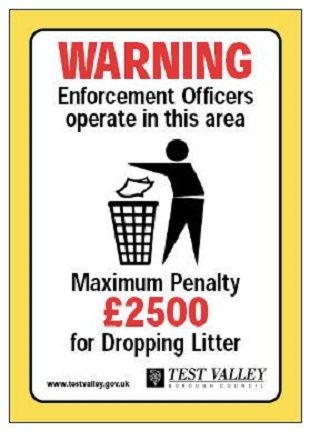OFFENCE OF DROPPING LITTER: A litterer is someone who drops or leaves junk objects on the ground in public places.
It also applies to isolated locations such as open private land or national forests.
The dumped refuse is often man-made debris or waste odds and ends. Examples include cigarette butts, paper or cardboard boxes, tin or aluminium cans, and glass or plastic bottles.
The offence of dropping litter also includes cumbersome and hazardous waste products. Dangerous types of waste items are electrical appliances, electronics, car tyres, and batteries.
Dropping Litter Criminal Offence
The UK litter dropping law aims to prosecute and fine those who knowingly deposit trash improperly. They do so, instead of disposing the rubbish in an appropriate manner.
The dropping of litter is a disgraceful blot on the nation’s landscape. But, littering also causes a problem for local residents and the authorities. This is the main reason why the United Kingdom has litter dropping laws and legislation to deal with the offenders.
Environmental Protection Act 1990
Section 87 of this litter dropping law makes it an offence to throw down, drop or otherwise deposit, and leave litter in any place in the open air.
Clean Neighbourhoods and Environment Act 2005
Section 27 of this litter dropping law amends the offence to include within the definition of litter the discarded ends of cigarettes, cigars and the discarded remains of other products designed for chewing.
Most Littered Item in the World
The most littered item around the world is cigarette butts. Experts estimate that 5 trillion cigarette butts will be discarded every year. In fact, it takes from five (5) to 400 years for cigarette ends to break down into complete degradation.
Litter Dropping Sanctions
You will be guilty of a criminal offence if you get caught dropping litter commensurate with Section 87 of the Environmental Protection Act. As a result you could be liable for a maximum fine of £2,500.
The usual procedure leading to prosecution for littering is generally less severe. As a rule, you are more likely to receive a fixed penalty notice instead. This is mostly due to the cost of prosecuting offenders and the time consuming nature in doing so.
Fixed Penalty Notices
Local authorities also have the power to issue offending litterers with a fixed penalty notice for dropping litter. The amendment to the Clean Neighbourhoods and Environment Act (section 88) allows this action.
Your local authority is fully authorised to specify a penalty between £60 and £150. But, the Clean Neighbourhoods Act specifies a default fixed penalty of £100 for this litter dropping offence.
No criminal proceedings get taken if you pay the notice. But, a criminal conviction may be brought against you if you refuse to pay the fine.

Responsibility for Cleaning Litter
Public Land
Local authorities have a legal duty to clear litter and refuse on certain areas of public land. As a general rule they have a responsibility to clear trash or garbage from;
- Roadways and pedestrian areas
- Park areas and children’s playgrounds
- Areas blighted by fly tipping
- Tourist beaches
In England, local authorities are permitted to enter and clean land owned by the Crown or a statutory undertaker. This is according to the Anti-Social Behaviour Act 2003 (section 56).
They can also place controls on leafleting and the distribution of free literature. Paper flyers often become a substantial source of debris. It is against the law to distribute free literature (or cause someone else to distribute) in an area designated by a ‘principal litter authority’.
Private Land
Local authorities have no powers to enter and clear rubbish from private land. The responsibility for clearing waste products from private land rests with the owner of the land.
Notices
Street Litter Control Notice
Street Litter Control Notices require the owners or occupiers of certain commercial premises to keep the street front of their premises clear from waste items. Local authorities may enforce this notice to prevent or remove the accumulation of refuse in the streets. Non-compliance of a Street Litter Control Notice could result in a fixed penalty notice of £100.
For example: A take-away food outlet is responsible for the control of trash immediately in front of their premises. But it would also apply to a park or public garden in the nearby vicinity of their business and property.
Litter Abatement Notice
A Litter Abatement Notice gets used most often on other local bodies for failing to keep their designated areas litter free, clean, and safe. The court may issue a Litter Abatement Order (LAO). Members of the public can also apply to a Magistrates Court to serve notice. That means the authority must clear the rubbish within a specified time frame.
Noncompliance with land abatement orders is a criminal offence. It could result in a fine up to £2,500 with additional fines of up to £125 per day if the offence continues after the conviction.
Litter Clearing Notice
Litter Clearing Notices force businesses and individuals to clear trash off their land and reduce future breaches of the UK littering laws. The local authority must serve the notice on the occupier of the land (or the landowner if there is no occupier). Non-compliance of a Litter Clearing Notice usually results in a fine.

